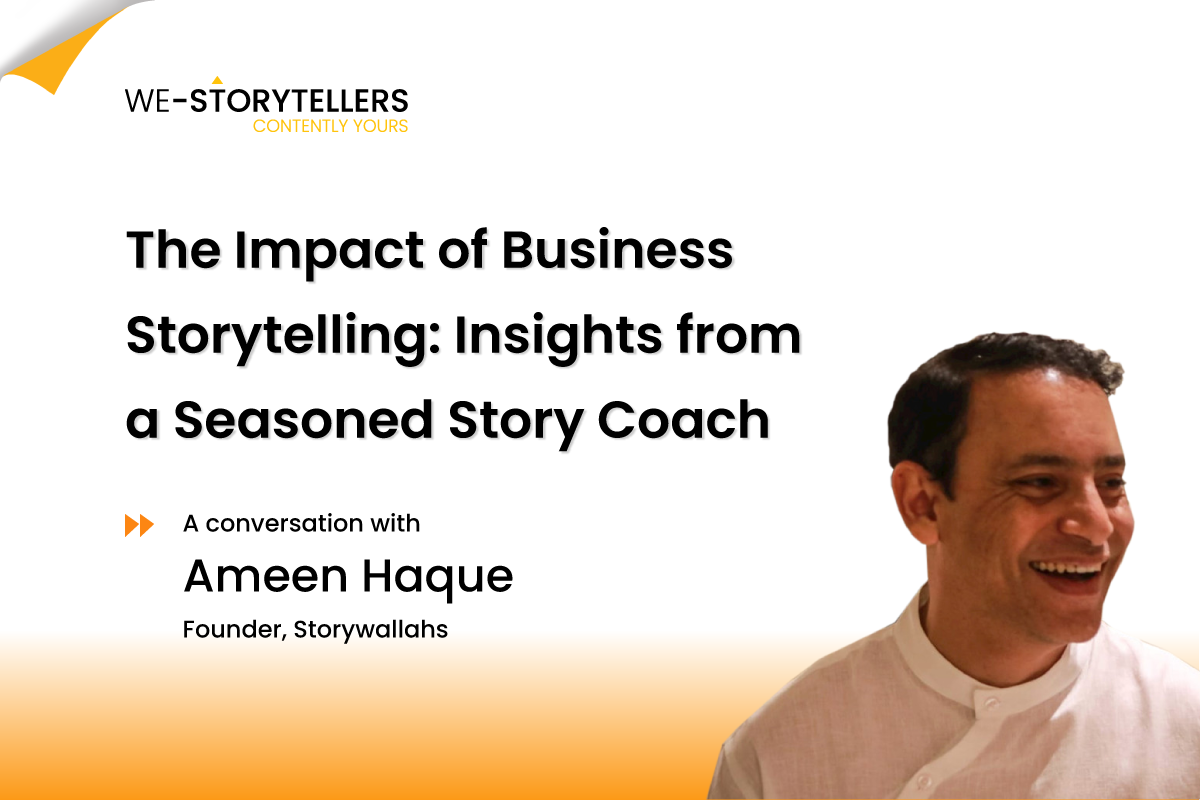A story coach, founder, speaker and consultant, Ameen Haque has more than two decades of experience across advertising, theatre, and mythology. He holds a deep-seated conviction in the profound impact of storytelling.
From shaping brand identities to refining startup pitches, he navigates the intricate landscape of storytelling with finesse and precision. Ameen’s influence transcends traditional boardroom settings, as he adeptly tailors captivating narratives for audiences ranging from corporate leaders to curious children.
His extensive client base, which includes prestigious names such as Harvard Business Review, BCG, and Google, underscores his position as a leading advocate for impactful storytelling. Our conversation delved deeply into his remarkable journey, enriched with experiences.
Q: Could you share a bit about your background and journey into storytelling?
A: I grew up in a small town called Vidyanagar, surrounded by books and a love for storytelling. My childhood was filled with theater, debates, and poetry, laying the foundation for my passion for narratives. Despite pursuing a career in advertising and consulting, I never strayed far from storytelling, eventually founding StoryWallahs to spread the magic of stories.
Q: How do organizations leverage storytelling, and what’s your perspective on business storytelling?
A: It’s a myth that only children consume stories. Adults consume stories through news, sports, politics, and business communication. However, not all stories are effective or authentic. Organizations like Google, Accenture, and startups too engage in storytelling to connect, inspire, and influence action. At StoryWallahs, we help senior leaders exercise their storytelling muscle, enabling them to make powerful points without relying on PowerPoint presentations.
Q: Can you share some storytelling tips for our readers and aspiring business storytellers?
A: Certainly. The best storytellers lead with actions, emphasizing that actions speak louder than words. Secondly, organizations should focus on the stories their stakeholders can tell rather than just their own narrative. Lastly, great storytellers are also great listeners, observing and asking questions to understand their audience better.
Q: What are the sources that spark your creativity and inspire your storytelling?
A: I find inspiration in small everyday incidents rather than grand events. For instance, a simple act of empathy from an airline hostess can be a compelling story. Capturing these small stories is crucial, as they provide evidence of the bigger narrative in play.
Q: How can one become a good storyteller, and what skills are essential?
A: Practice is key. Start by telling stories to children, and honest critics with low attention spans, like CEOs. Practice holding attention by gradually increasing storytelling duration. Begin stories effectively, shift from “I” to “we” narratives, incorporate conflict for contrast, and solve relevant conflicts to engage listeners effectively.


